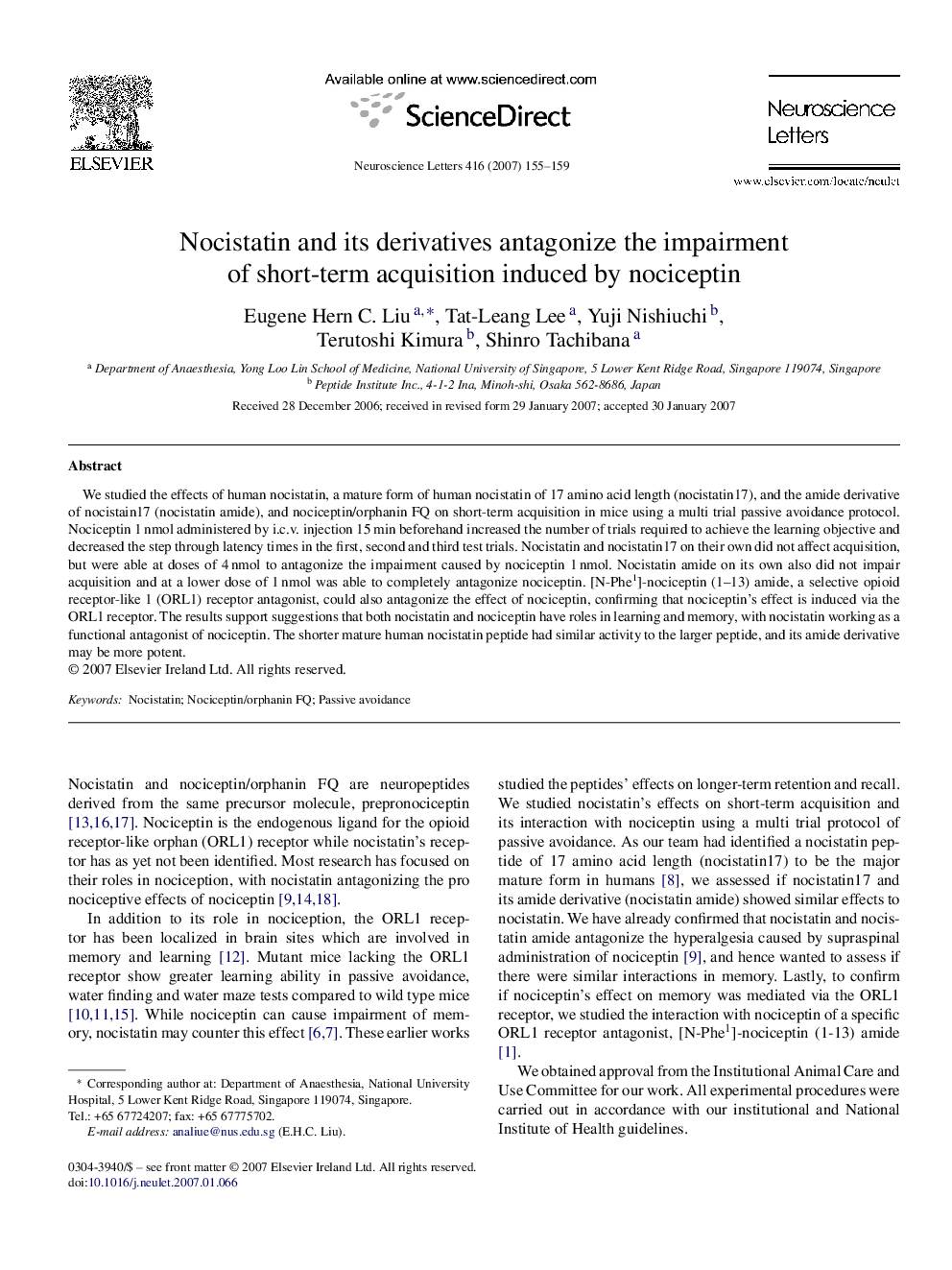| Article ID | Journal | Published Year | Pages | File Type |
|---|---|---|---|---|
| 4349594 | Neuroscience Letters | 2007 | 5 Pages |
We studied the effects of human nocistatin, a mature form of human nocistatin of 17 amino acid length (nocistatin17), and the amide derivative of nocistain17 (nocistatin amide), and nociceptin/orphanin FQ on short-term acquisition in mice using a multi trial passive avoidance protocol. Nociceptin 1 nmol administered by i.c.v. injection 15 min beforehand increased the number of trials required to achieve the learning objective and decreased the step through latency times in the first, second and third test trials. Nocistatin and nocistatin17 on their own did not affect acquisition, but were able at doses of 4 nmol to antagonize the impairment caused by nociceptin 1 nmol. Nocistatin amide on its own also did not impair acquisition and at a lower dose of 1 nmol was able to completely antagonize nociceptin. [N-Phe1]-nociceptin (1–13) amide, a selective opioid receptor-like 1 (ORL1) receptor antagonist, could also antagonize the effect of nociceptin, confirming that nociceptin's effect is induced via the ORL1 receptor. The results support suggestions that both nocistatin and nociceptin have roles in learning and memory, with nocistatin working as a functional antagonist of nociceptin. The shorter mature human nocistatin peptide had similar activity to the larger peptide, and its amide derivative may be more potent.
